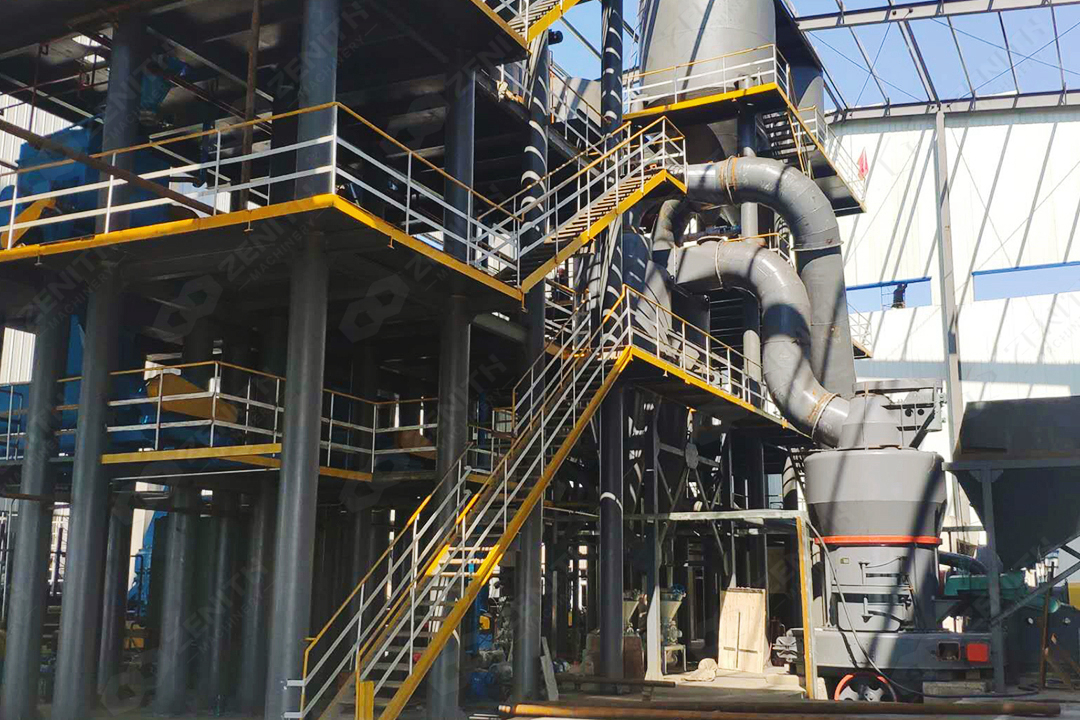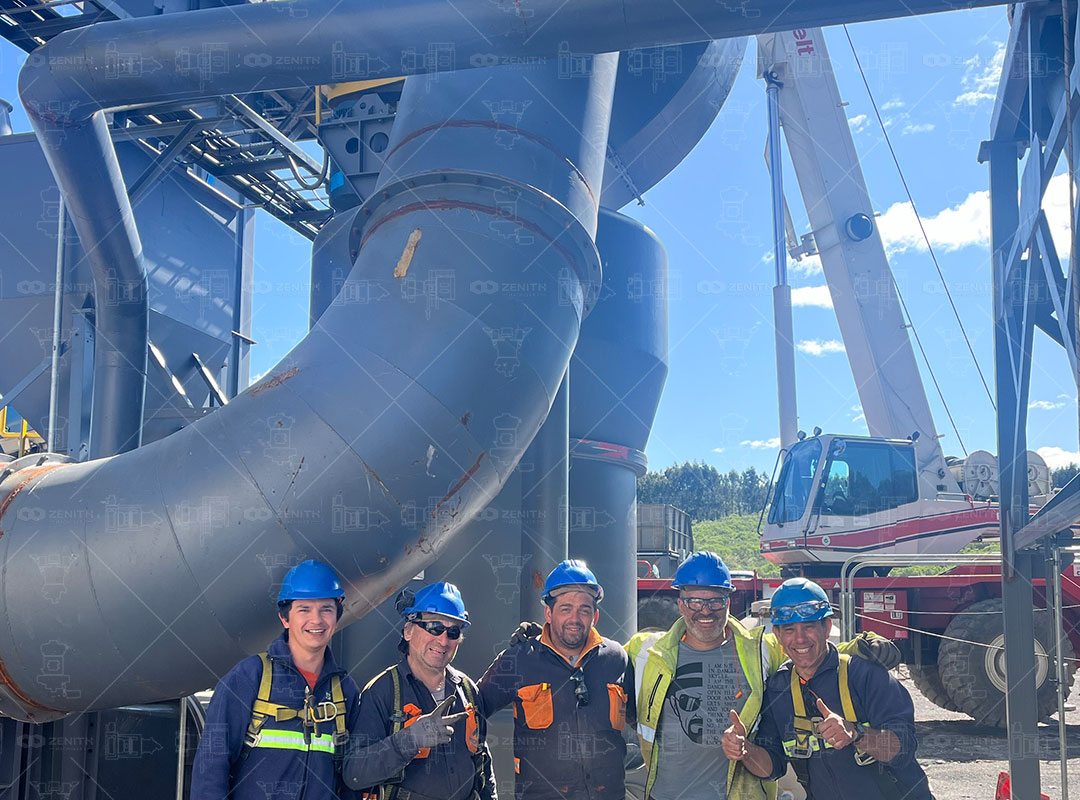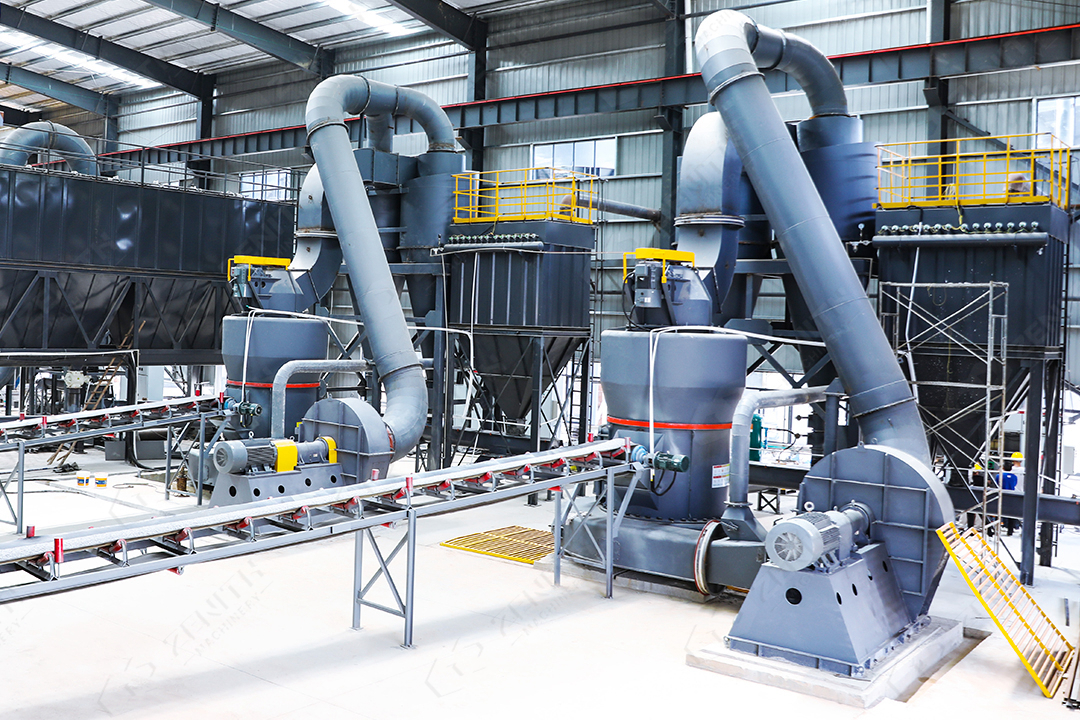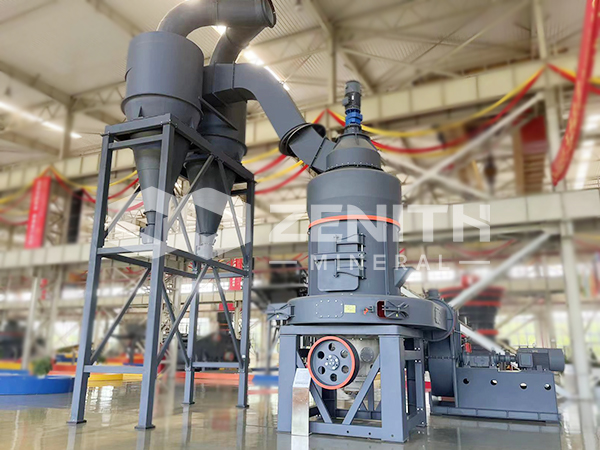天津北疆电厂磨煤机
2025-11-05 16:45:29
Revolutionizing Coal Pulverization at Tianjin Beijiang Power Plant
Introduction: The Critical Role of Grinding Technology in Thermal Power Generation
Thermal power plants worldwide face increasing pressure to enhance operational efficiency while meeting stringent environmental standards. At Tianjin Beijiang Power Plant, one of Northern China's most significant power generation facilities, the optimization of coal grinding operations has become paramount to achieving these dual objectives. As a specialized provider of industrial grinding equipment, Zenith Machinery brings decades of engineering expertise to address the unique challenges of power plant coal preparation.
The selection of appropriate grinding equipment directly impacts fuel efficiency, emission control, and overall plant economics. This article examines how modern grinding technologies, particularly Zenith's advanced mill systems, can transform coal preparation processes at facilities like Tianjin Beijiang Power Plant.
Current Grinding Challenges in Power Plant Operations
Power plant operators consistently grapple with several critical challenges in coal pulverization. Traditional ball mills, while reliable, suffer from excessive energy consumption—often accounting for 15-20% of a plant's auxiliary power usage. Additionally, inconsistent particle size distribution can lead to incomplete combustion, increased unburnt carbon, and higher particulate emissions.
At Tianjin Beijiang, the specific characteristics of the coal blend used—typically a mixture of imported and domestic coals with varying hardness and moisture content—demand grinding equipment with exceptional adaptability. The need for precise fineness control (typically targeting 80-90% passing 200 mesh) is crucial for optimal combustion efficiency in the boiler system.

Zenith Grinding Solutions: Technical Superiority for Power Applications
MTW European Trapezium Mill: The Workhorse for Coal Grinding
The MTW series trapezium mill represents Zenith's flagship solution for power plant applications. With capacity ranging from 3-22 T/H and the ability to produce 80-400 mesh fine powder, this system offers the perfect balance of throughput and fineness control for coal pulverization. The largest MTW model achieves 50tph capacity with remarkably low specific power consumption—approximately 60% lower than equivalent ball mills.
What makes the MTW particularly suitable for Tianjin Beijiang's requirements is its advanced air induction system. The high-efficiency impeller fan improves air induction efficiency from 62% to 85%, ensuring optimal material transport through the grinding system while maintaining stable negative pressure operation to prevent dust emissions.

LM Vertical Grinding Mill: Automation and Reliability
For operations requiring continuous 24-hour running with minimal supervision, the LM Vertical Grinding Mill offers unparalleled advantages. Its compact integrated design reduces footprint by approximately 50% compared to ball mill systems, making it ideal for space-constrained retrofitting scenarios. The automated control system enables remote operation and monitoring—a significant benefit for modern power plants implementing digital transformation initiatives.
The LM mill's ability to handle input sizes up to 70mm provides flexibility in feed preparation, while the negative pressure operation ensures dust-free performance, aligning with Tianjin's strict environmental regulations.
XZM Ultrafine Grinding Mill: Precision for Specialized Applications
While primarily used for industrial minerals, the XZM series demonstrates remarkable capabilities for specialized power plant applications requiring ultra-fine additives or sorbents. With fineness adjustable between 325-3250 mesh and energy consumption 70% lower than air-flow mills, this technology offers potential for advanced emission control systems where precise reagent preparation is critical.
Case Study: Comparative Analysis of Grinding Technologies
A technical comparison between traditional ball mills and Zenith's advanced systems reveals compelling advantages for power plant applications. In a simulated operational scenario matching Tianjin Beijiang's requirements, the MTW European Trapezium Mill demonstrated:
- Energy savings of 62.3% compared to ball mill operation
- 35% reduction in maintenance downtime
- 18% improvement in particle size consistency
- 45% reduction in spare parts consumption
The modular impeller adjustment system enables operators to fine-tune product fineness without system shutdowns—a crucial feature for adapting to varying coal characteristics. The integrated production system from bulk material to finished powder eliminates multiple handling stages, reducing both capital and operational expenditures.

Environmental Compliance and Sustainability Benefits
Modern grinding technology plays a pivotal role in helping power plants meet increasingly stringent environmental standards. Zenith's mill systems operate under sealed, negative pressure conditions with integrated pulse dust collectors that achieve 99.9% collection efficiency. This eliminates fugitive dust emissions—a common challenge in traditional open-circuit grinding systems.
The significant reduction in energy consumption directly translates to lower carbon footprint. For a facility of Tianjin Beijiang's scale, adopting high-efficiency grinding could reduce CO2 emissions by approximately 8,000-12,000 tons annually, depending on operational profile and coal consumption rates.
Implementation Strategy for Tianjin Beijiang Power Plant
The transition to advanced grinding technology requires careful planning and phased implementation. Zenith recommends a comprehensive approach including:
- Detailed coal characterization analysis to determine optimal grinding parameters
- Pilot testing with actual plant coal blends
- Gradual implementation starting with one grinding line
- Operator training and digital integration with existing control systems
- Performance monitoring and optimization over 6-12 month period
This systematic approach minimizes operational disruption while maximizing the benefits of technology upgrade. Zenith's global service network, with offices in over 30 countries, ensures technical support availability throughout the implementation and operational phases.
Future Outlook: The Evolution of Grinding Technology
As thermal power plants evolve to meet changing energy landscapes, grinding technology continues to advance. Emerging trends include:
- Integration with digital twin technology for predictive maintenance
- AI-driven optimization of grinding parameters based on real-time coal analysis
- Hybrid systems combining multiple grinding technologies for optimal efficiency
- Enhanced materials for wear parts to extend service intervals
Zenith's ongoing R&D initiatives focus on these areas, ensuring that our grinding solutions remain at the forefront of technology for power generation applications.
Conclusion
The optimization of coal grinding operations represents a significant opportunity for Tianjin Beijiang Power Plant to enhance efficiency, reduce environmental impact, and improve economic performance. Zenith's advanced grinding technologies, particularly the MTW European Trapezium Mill and LM Vertical Grinding Mill, offer technically superior solutions specifically engineered for power plant applications.
With global certifications including ISO, CE, and CU-TR, and a presence in over 180 countries, Zenith brings proven reliability and performance to critical industrial applications. The company's commitment to research and development ensures continuous improvement aligned with evolving industry requirements.
For facility managers and engineers at Tianjin Beijiang, investing in modern grinding technology represents not just an equipment upgrade, but a strategic enhancement of core operational capabilities that will deliver lasting benefits throughout the plant's operational lifecycle.
Frequently Asked Questions
What is the typical installation timeline for an MTW European Trapezium Mill at an existing power plant?
The installation typically requires 4-6 weeks for a complete system, including foundation preparation, mechanical installation, electrical connection, and commissioning. This timeline can vary based on site-specific conditions and the extent of auxiliary systems required.
How does the energy consumption of Zenith's grinding mills compare to traditional ball mills?
Zenith's advanced mills demonstrate energy savings of 60% or more compared to traditional ball mills of equivalent capacity. The MTW series specifically consumes over 60% less energy under ideal working conditions while maintaining equivalent or superior product quality.
Can these grinding systems handle variations in coal quality and moisture content?
Yes, Zenith's mills are engineered to accommodate significant variations in material characteristics. The MTW and LM series can effectively process materials with moisture content up to 15% and adapt to changes in coal hardness through adjustable operational parameters.
What type of maintenance schedule is required for these grinding systems?
Preventive maintenance intervals typically range from 500 to 1,000 operating hours for routine inspections, with major overhauls recommended every 8,000-10,000 hours. The modular design of critical components reduces downtime for replacement and repair.
How does the particle size distribution from these mills affect combustion efficiency?
Consistent particle size distribution, particularly the high proportion of material in the optimal 75-200 micron range, significantly improves combustion efficiency by ensuring more complete burning, reducing unburnt carbon, and minimizing slag formation.
Are these grinding systems compatible with existing coal handling infrastructure?
Zenith's engineering team conducts comprehensive compatibility assessments during project planning. Most systems can be integrated with existing coal handling infrastructure with minimal modifications, though optimal performance may require some auxiliary equipment upgrades.
What certifications do Zenith grinding systems hold for international operation?
Zenith equipment carries ISO international quality system certification, European Union CE certification, and Customs Union CU-TR certification, ensuring compliance with global standards for safety, performance, and environmental protection.
How does the operational noise level of these mills compare to traditional equipment?
Zenith's advanced grinding systems operate at significantly reduced noise levels, typically below 85 dB, due to their enclosed design and precision engineering. This represents a substantial improvement over traditional open-system ball mills.
What remote monitoring capabilities are available with these grinding systems?
Modern Zenith mills feature comprehensive IoT connectivity for remote monitoring of operational parameters, performance metrics, and predictive maintenance indicators. This enables real-time optimization and reduces the need for constant onsite supervision.
How does the footprint of these grinding systems compare to traditional ball mills?
Zenith's compact designs typically require 30-50% less floor space than equivalent capacity ball mill systems. The vertical configuration of the LM series offers particular advantages in space-constrained environments.









